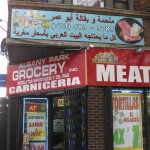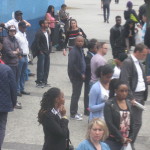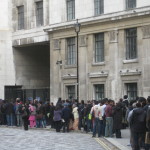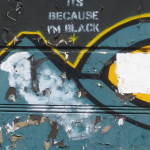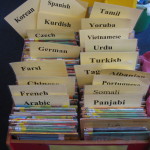Border Struggles in the Migrant Metropolis
by Nicholas de Genova
Transnational migration is a central and constitutive dynamic in the social production (and transformation) of urban space. These transnational urban conjunctures are indisputably generated very much within the territorial boundaries and jurisdictions of nation-states, and in relation to the very palpable enforcement of nation-state space through immigration law and border policing. However, they radically destabilize and contradict the spatial premises and conceits of nationalism, and require us to examine the proliferation of sites of border enforcement far removed from physical borders at the territorial margins of states. The spatial practices of migrants and their struggles therefore provide crucial standpoints of critique from which to interrogate the methodological nationalism that has commonly plagued much social scientific research, generally, and also what we may call the “borderological” fetishism of much border and migration studies. The migrant metropolis becomes the premier exemplar, simultaneously, of the extension of borders deep into the putative “interior” of nation-state space through immigration law enforcement that increasingly saturates the spaces of everyday life, and of the disruptive and incorrigible force of migrant struggles that dislocate borders and instigate a re-scaling of border struggles as urban struggles. Thus, on a global scale, the differential spaces produced at the intersection of migrant subjectivities and historicities with specific cities challenge scholars in migration and border studies to fundamentally reconceptualize the emergent formations of social and political life.
Nicholas De Genova (King’s College)

